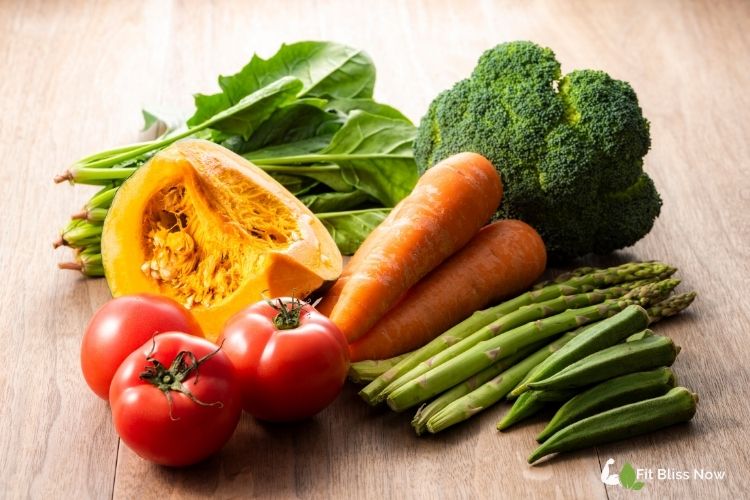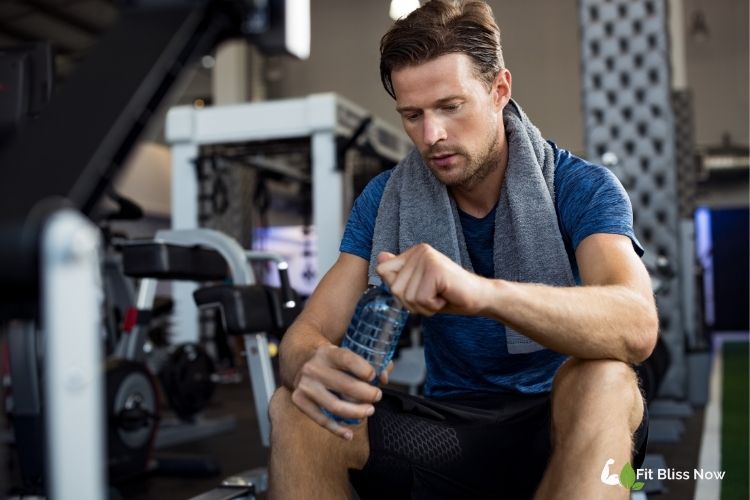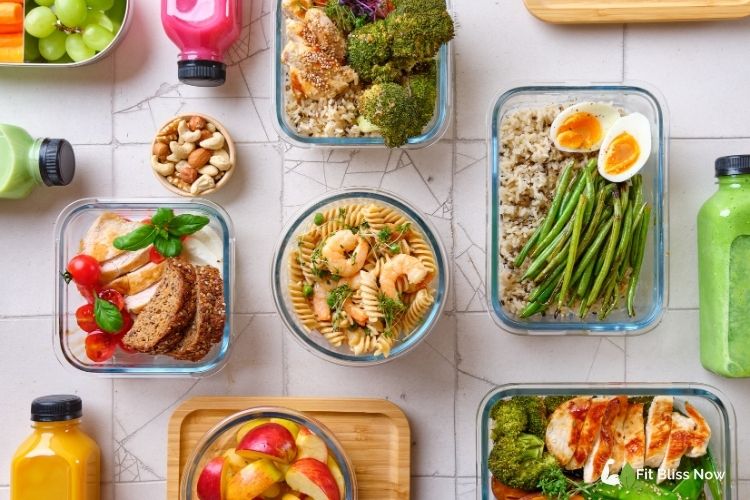Unlock the secrets of nutrition for athletes with proven strategies to enhance performance, speed up recovery, and fuel your training. Learn how to optimize your diet with the right nutrients, timing, and hydration.
Whether you’re a professional athlete or a fitness enthusiast, what you eat plays a critical role in how you perform. Nutrition for athletes goes far beyond calories—it’s about fueling the body with the right nutrients, at the right times, to support training, recovery, and long-term health.
A well-structured nutrition plan can improve strength, speed, focus, endurance, and injury prevention. In this comprehensive guide, we’ll break down the essential components of a performance-enhancing diet, tailored specifically for athletes across all sports disciplines.
Why Nutrition Matters for Athletes

Nutrition for Athletes: Strategies to Boost Performance
Proper nutrition fuels performance in training and competition. It also:
Enhances muscle repair and recovery
Reduces risk of injury and illness
Regulates energy levels and mood
Supports immune function and hormonal balance
Promotes optimal body composition
Without sports-focused nutrition, even the most rigorous training program can fall short of its potential.
Macronutrients: Building Blocks of Performance

Table with colorful fruits, leafy greens, nuts, and supplements.
1. Carbohydrates – The Primary Fuel Source
Carbohydrates are the main energy source for athletes, especially in high-intensity and endurance sports. Stored as glycogen in muscles and the liver, carbs help sustain energy during prolonged activity.
Pre-workout: Consume complex carbs like oats, brown rice, or whole grain toast 1–3 hours before training.
Post-workout: Replenish glycogen with fast-absorbing carbs like fruit, white rice, or sports drinks.
Good sources of healthy carbohydrates:
Sweet potatoes
Quinoa
Bananas
Whole grain pasta
Berries
2. Proteins – Essential for Muscle Recovery
Protein helps repair muscle tissue and supports strength gains. Adequate intake is especially crucial after workouts when muscle fibers need to rebuild.
Daily intake: Aim for 1.2 to 2.0 grams of protein per kilogram of body weight, depending on training intensity.
Post-exercise: Consume 20–40g of protein within 30–60 minutes of finishing a workout.
Excellent protein sources for athletes:
Chicken, turkey, lean beef
Fish (salmon, tuna, sardines)
Eggs and egg whites
Greek yogurt and cottage cheese
Plant-based options: tofu, tempeh, lentils, chickpeas
3. Fats – For Long-Term Energy and Hormonal Health
While often misunderstood, fats are vital for endurance athletes and those engaged in long sessions of moderate-intensity exercise.
Choose healthy fats such as:
Avocados
Nuts and seeds (especially almonds, walnuts, chia seeds)
Olive oil
Fatty fish
Avoid trans fats and minimize saturated fat intake from processed foods.
Micronutrients: Small but Mighty
Vitamins and minerals support numerous bodily functions including oxygen transport, muscle contraction, and energy production.
Key micronutrients for athletes:
Iron: Essential for oxygen transport in blood. Found in red meat, spinach, legumes.
Calcium & Vitamin D: Crucial for bone health. Found in dairy, leafy greens, sunlight, and fortified foods.
Magnesium: Supports muscle relaxation and reduces cramping. Found in nuts, seeds, and dark chocolate.
B Vitamins: Help convert food into energy. Found in whole grains, meat, and eggs.
Zinc: Aids in muscle repair and immune defense. Found in seafood, seeds, and legumes.
Athletes may require higher amounts of certain micronutrients, especially if training is intense or long-term. Blood tests and nutrition consultations are advised.
Hydration: The Forgotten Performance Booster

Athlete drinking water during a workout or holding a water bottle with electrolytes.
Dehydration can lead to fatigue, reduced coordination, and heat-related illnesses. Even a 2% drop in body water can impair performance.
Hydration Guidelines:
Drink water consistently throughout the day—not just when you’re thirsty.
During long or intense sessions, use electrolyte drinks to replace sodium, potassium, and magnesium.
Weigh yourself before and after training; for every 1 kg of weight lost, drink 1.5 liters of fluid.
Coconut water, homemade electrolyte drinks, and sports beverages can help maintain hydration and electrolyte balance.
Nutrient Timing: When You Eat Matters
Before Exercise
Eat a balanced meal with complex carbs and protein 2–3 hours before a workout to ensure energy is sustained.
Example: Grilled chicken, sweet potato, and steamed vegetables
Snack option (30–60 minutes before): Banana with peanut butter or a protein smoothie
During Exercise
For workouts longer than 60 minutes, fuel with quick carbs:
Sports drinks
Energy gels or chews
Dried fruit or bananas
After Exercise
The post-workout window (within 30–60 minutes) is crucial for recovery:
Replenish glycogen with fast carbs
Repair muscles with high-quality protein
Rehydrate with fluids and electrolytes
Example recovery meal: Salmon with brown rice and mixed greens + electrolyte drink
Supplements: What’s Useful for Athletes?
While whole foods should form the foundation of an athlete’s diet, certain sports supplements can offer benefits when used properly:
- Protein: Convenient post-workout protein source
Creatine Monohydrate: Supports strength, power, and recovery
Caffeine: Enhances endurance and mental focus (use before workouts)
BCAAs: May reduce muscle soreness during high-volume training
Multivitamins: To cover potential gaps in micronutrient intake
Always choose third-party tested supplements to avoid banned substances and ensure safety.
Sample Daily Meal Plan for Athletes

Nutrition for Athletes: Strategies to Boost Performance
Breakfast:
Oatmeal with berries, almond butter, and chia seeds
Scrambled eggs or tofu
Green tea or black coffee
Snack:
Greek yogurt with granola
Apple with almonds
Lunch:
Quinoa bowl with grilled chicken, avocado, roasted vegetables
Mixed greens salad with olive oil dressing
Pre-Workout Snack:
Banana and a scoop of peanut butter
Electrolyte drink or water
Post-Workout Shake:
Protein powder, frozen berries, almond milk, flaxseed
Dinner:
Grilled salmon or lentil stew
Brown rice and steamed broccoli
Herbal tea
Evening Snack (if needed):
Cottage cheese with walnuts
Hard-boiled egg
Common Nutrition Mistakes Athletes Should Avoid
Skipping meals or under-eating during training blocks
Relying too heavily on processed protein bars or powders
Not fueling properly before and after workouts
Forgetting to hydrate regularly
Using unverified supplements
Ignoring micronutrient intake
Conclusion: Food Is Your Competitive Edge
Your training doesn’t stop at the gym—it continues at the dinner table. Adopting the right nutrition strategies for athletes is one of the most powerful ways to boost performance, prevent injury, and support overall health. Every bite you take can bring you closer to your goals or hold you back.
Fuel your body like it deserves—like the machine it is. Performance is built on consistency, and nutrition is the foundation.


